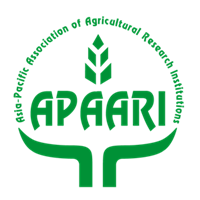Institutional Learning and Change (ILAC) at ICRISAT: A Case Study of the Tata-ICRISAT Project
Institutional innovations are critical for effective performance of agricultural research centres in natural resource management projects that often include multiple and diverse stakeholders with contrasting objectives and activities. This report shows how institutional histories of projects can be used as tools to help reveal institutional innovations thereby promoting Institutional Learning And Change (ILAC). This report extends an earlier work on using institutional histories over a thirty-year period to understand research practice at an international agricultural research centre, by focusing on applying institutional insights to a current project of the agroecosystems group of ICRISAT with an Indian ‘unconventional’ donor. It draws out lessons for scaling-up of activities in multi-partner initiatives. The report also explores the use of actor-oriented tools for project management and recommends its use to enable collective reflection on partnerships in review and planning meetings of projects. The learning from the historical study and the application of institutional histories in an ongoing project together reveal interesting insights on international agricultural research centres and their efforts towards a transition into learning organizations.
Related Resources

Report on Prioritization of Demand-driven Agricultural Research for Development in Bangladesh
International Food Policy Research Institute (IFPRI) partnered with the Asia-Pacific Association of Agricultural Research Institutions (APAARI) in 2011 to conduct a series of policy dialogues on the prioritization of demand-driven agricultural research for development in South Asia. Dialogues were conducted...
Innovation and Growth: Rationale for an Innovation Strategy
This report discusses general innovation issues and how they are affecting economic growth. It emphasizes how the advances in ICT, biotechnology and other fields of science are changing the innovation landscape and what are the implications for CD.
Performance Indicators for Agricultural Innovation Systems in the ACP Region
This synthesis report presents the outputs of the workshop organised by CTA at its headquarters in Wageningen, The Netherlands, 15-17 July 2008. The outputs are presented in two main parts, each corresponding to one of the workshop objectives, and ends with a...
Bringing the invisible into perspective
This reference document describes a comprehensive approach for planning, monitoring and evaluation of capacity and the results of capacity development processes. This capacity framework used centres around 5 capabilities (‘5Cs’) that together contribute to an organisation’s ability to create social...
Gender Equality in Rural Advisory Services
This brief explains the concept of gender equality in advisory services and discusses the opportunities that gender equality in rural advisory services can create for global and local food production, women’s economic empowerment, household food security, and nutrition. It summarises...


